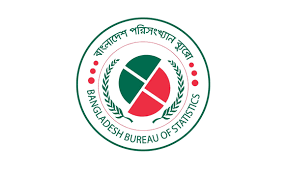Bangladesh’s food security is under growing threat as the country lost agricultural land at an alarming rate of 3.75 percent over the past eight years, largely due to unchecked urbanisation.
This key finding was unveiled on Sunday in a report by the Bangladesh Bureau of Statistics (BBS), conducted under its ‘Strengthening Environment, Climate Change and Disaster Statistics (ECDS)’ project.
The survey, which covers the period from 2015 to 2023, offers the most comprehensive snapshot yet of environmental and climate challenges in Bangladesh.
The report highlights the urgency of climate-related policy planning. It marks a critical milestone in Bangladesh’s efforts to develop an official framework for environmental statistics.
Aside from the loss of farmland, the survey revealed that natural forest cover in the country fell by 5.41 percent over the same period. However, this was partly balanced by a 27.36 percent increase in planted forests, mainly through social afforestation initiatives.
The survey spans a wide range of topics, including water usage, land accounts, forest and ecosystem resources, household material consumption, and land cover classification. It also includes in-depth data on solid waste, e-waste, and pollution levels in rivers and water bodies.
Aleya Akter, Secretary of the Statistics and Information Division under the Ministry of Planning, attended the event as chief guest. AK Enamul Haque, Director General of the Bangladesh Institute of Development Studies (BIDS), was present as a special guest, while BBS Director General Muhammed Mizanur Rahman chaired the session.
Project Director Mohammad Saddam Hossain Khan presented the key findings, noting that the main aim of the ECDS project is to institutionalize environmental statistics in Bangladesh. This includes producing reliable data on natural resources, climate change, biodiversity, and disaster risk.
Khan also emphasized the importance of developing physical flow accounts for natural resources such as land, water, and forests. These accounts are aligned with the global UN System of Environmental-Economic Accounting (SEEA), which helps countries measure and manage the environment’s contribution to their economies.
During the seminar, seven major reports were released. These include the 2024 Household-Based Environmental Survey (HBES), material footprint and domestic material consumption data, water flow accounts, natural resource accounts for land and forests, and a time series environmental spreadsheet for international reporting.
The findings paint a sobering picture of how rapid urbanisation and environmental neglect are putting Bangladesh’s food production and ecological balance at serious risk. Experts at the seminar stressed the urgent need for long-term planning and stronger environmental governance to protect the country’s agricultural base and ensure food security for future generations.

